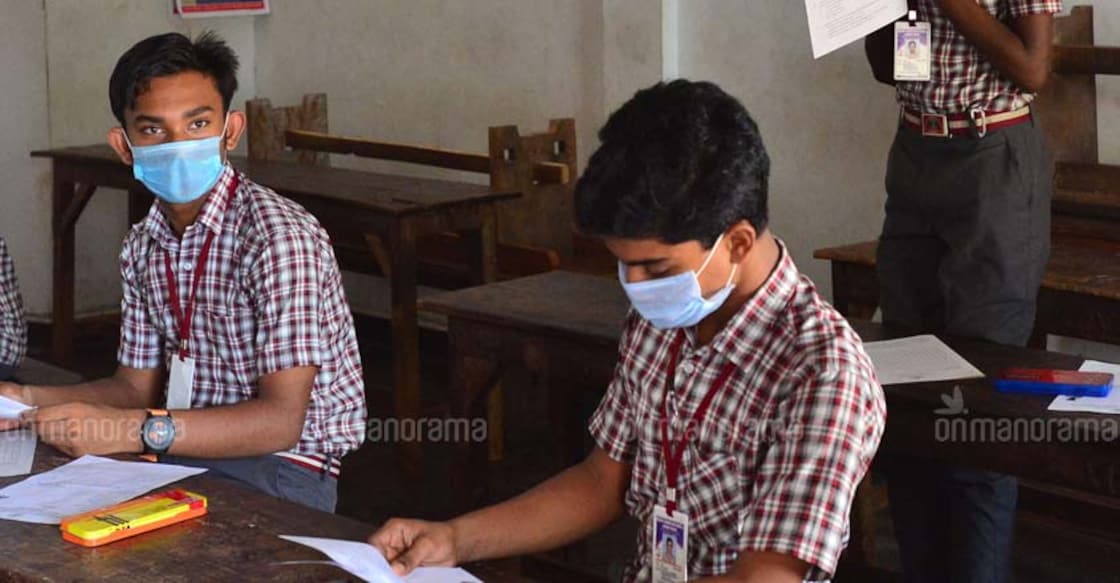SSLC, higher secondary exams: Quarantined students to wear triple-layer masks

Mail This Article
Thiruvananthapuram: The Kerala Health department has issued guidelines on conducting the SSLC and higher secondary exams in the state amid the COVID-19 pandemic.
Students, arriving from other states or Lakshadweep, should be allotted a special exam centre or separate classrooms at the exam centres. These students in quarantine or those with symptoms should wear triple-layer masks. Other students can wear cloth or surgical masks.
Invigilators too have to wear triple-layer masks and gloves. School staff will also have to wear cloth or surgical masks. Parents should not be allowed to enter school premises.
Other guidelines:
* School authorities have to prepare a micro-plan, including details such as the number of students (those from within the state and outside); number of classrooms, chairs, and travel facility.
* The health department will deploy one male and female health worker at the exam centre. They will check the micro-plan and evaluate the infection control measures. They will also provide training to invigilators and school authorities.
* Those with fever-like symptoms should be allowed to write exams in separate rooms. They should be taken for medical examination at the health centre after the exam.
* Exam halls should have proper ventilation. No air-conditioners.

* A distance of 1.5 metre should be ensured between the seats of those in quarantine or have symptoms.
* The amount of time the invigilator spends in the exam hall should be reduced as much as possible and instead use the CCTV facility.
* Students should not be allowed to share pens, instrument box, etc.
* After the exams, the hall, desks, benches, and chairs should be cleaned with 1 per cent bleaching solution.
* School authorities have to ensure the availability of masks, sanitiser, and liquor soap
Sanitised corridor
* Students and parents coming from Lakshadweep and other states will have to be in quarantine for 14 days. Travel facilities have to be arranged from their place of residence to the exam centre and back. A sanitised corridor (red channel) has to be ensured for this.
* If students, from hotspots, are writing the exam in a non-hotspot area, they too will have to follow the sanitised corridor protocol.
* It would be ideal to set up one special centre in the district for all students from other states and Lakshadweep.
* If they are writing the exam at the same centre with other students, then separate toilet facilities have to be arranged for. Even students with symptoms should be provided separate toilet facility.

Collecting answer sheets
* Students in quarantine and those with symptoms should drop the answer sheets into a big plastic bag. Invigilator would seal this bag and take it to the evaluation camp on that day itself. These should be stored separately and evaluation conducted only after seven days.
* Other students can leave their answer sheets on the desks. Invigilators will pack them in paper bags and take it to evaluation camps. Evaluation will be done only after seven days.
Only one person to accompany student
* Only one person is allowed to accompany the student to the exam centre. Parents also have to wear masks, maintain social distancing and ensure personal hygiene.
* Students and parents should not crowd around outside the exam centre.
Teachers, staff travelling to other districts
DGP Loknath Behera has said that teachers and other staff, who have to travel to other districts for exam duty, need to carry their ID card and documents related to the exam. These will be considered as travel pass.

